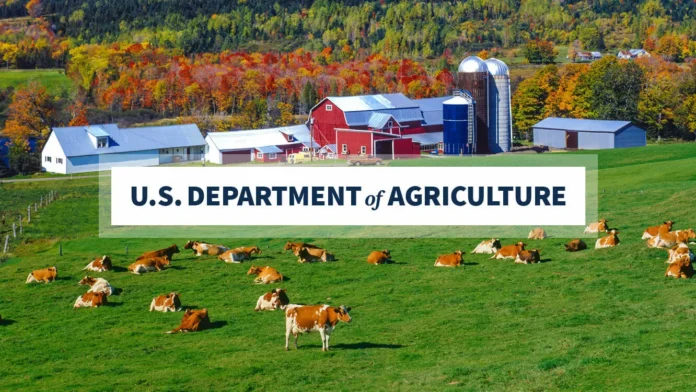In a groundbreaking move, the U.S. Department of Agriculture (USDA) has announced a historic $1.5 billion investment in 92 conservation projects through the Regional Conservation Partnership Program (RCPP). This partner-driven approach to conservation is a game-changer, as it not only addresses natural resource challenges on agricultural land, but also amplifies the impact of federal investment through the contributions of partners.
This announcement, made on October 23, 2024, marks a significant step towards sustainable and responsible land management in the United States. The RCPP, which was established in 2014, has been instrumental in bringing together public and private partners to develop and implement conservation solutions that benefit both agriculture and the environment. With this new funding, the program is set to make an even greater impact in the years to come.
The $1.5 billion investment will be distributed among 92 partner-driven projects across the country, covering a wide range of conservation efforts. These projects will focus on improving soil health, water quality, and wildlife habitat, while also promoting sustainable agricultural practices. The diversity of projects reflects the USDA’s commitment to addressing a variety of natural resource challenges and promoting a holistic approach to conservation.
What makes the RCPP truly unique is its emphasis on collaboration and partnership. The program brings together a wide range of stakeholders, including farmers, ranchers, conservation groups, and state and local governments, to work towards a common goal. By leveraging the expertise and resources of these partners, the impact of the federal investment is multiplied, making it a highly cost-effective and efficient approach to conservation.
In fact, the $1.5 billion investment by the USDA will be matched by $968 million in contributions from partners, bringing the total investment to a staggering $2.5 billion. This is a testament to the power of collaboration and the commitment of these partners towards conservation efforts. It also highlights the USDA’s efforts to foster public-private partnerships and promote a more inclusive and participatory approach to conservation.
The benefits of the RCPP are not limited to the environment alone. By promoting sustainable land management practices, the program also supports the long-term viability of agriculture. This is crucial in a time when the agriculture industry is facing numerous challenges, including climate change, declining soil health, and water scarcity. By investing in conservation, the USDA is not only safeguarding the environment, but also ensuring the sustainability of the agriculture sector.
The impact of the RCPP can already be seen in the success of previous projects. Since its inception, the program has invested over $2 billion in 375 partner-driven projects, benefitting over 8 million acres of agricultural land. These projects have resulted in improved soil health, cleaner water, and enhanced wildlife habitat, while also providing economic benefits for farmers and ranchers. With the additional funding, the RCPP is poised to make an even greater impact in the future.
The USDA’s commitment to conservation through the RCPP is a reflection of its dedication to promoting sustainable and responsible land management practices. By investing in conservation, the agency is not only fulfilling its mandate to protect natural resources, but also contributing to the overall well-being of the nation. The RCPP is a shining example of how public-private partnerships can drive positive change and create a better future for all.
As we move towards a more sustainable future, the RCPP will continue to play a crucial role in promoting conservation and responsible land management. The $1.5 billion investment by the USDA is a clear indication of the government’s commitment towards this goal. It is now up to the partners and stakeholders to work together and make the most of this historic opportunity. Let us all join hands and work towards a greener, healthier, and more sustainable tomorrow.

